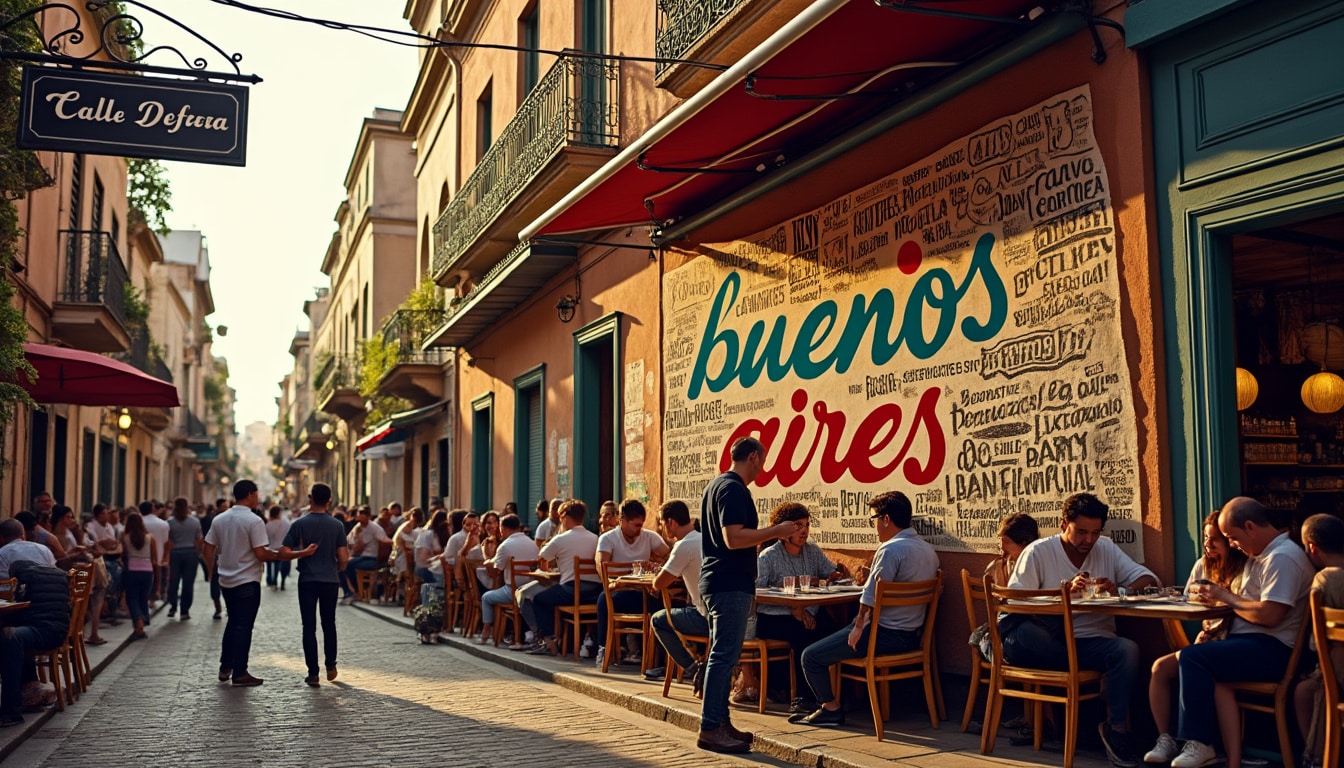Buenos Aires, often celebrated as the “Paris of South America,” stands as the vibrant capital of Argentina, rich in cultural diversity and linguistic variety. Known for its dynamic blend of European elegance and Latin American flair, Buenos Aires captivates millions of visitors annually. At the heart of its allure lies its unique linguistic landscape. Predominantly Spanish-speaking, this city also resonates with an intriguing mix of languages including Italian, Portuguese, and English, reflecting its cosmopolitan essence. This linguistic tapestry provides not only a window into its diverse population but also a gateway for both tourists and residents to explore and connect with this bustling metropolis on a deeper level.
Understanding Rioplatense Spanish in Buenos Aires
In Buenos Aires, the Spanish language isn’t just spoken; it’s expressed with a distinct flair known as Rioplatense Spanish. This variant, also prevalent in parts of Uruguay and Paraguay, carries unique phonetic characteristics. One of the most notable features is its pronunciation of the “ll” and “y” sounds, typically pronounced as a “sh,” rendering words like “calle” (street) akin to “cashe.” This transformation is coupled with a melodic intonation influenced by Italian immigration patterns.
Another fascinating aspect is the use of “vos” instead of the traditional “tú” in informal settings. This form is not merely a grammatical shift but a cultural marker, embedding a sense of identity and regional pride. Expressions like, “¿Vos sabés?” replace “¿Tú sabes?” in everyday conversation, highlighting this distinctive variant of Spanish.
Moreover, the city’s vernacular includes a rich array of slang, known as lunfardo, which boasts words of Italian, African, and indigenous origins. Initially rooted in the lower socioeconomic strata and prison culture, lunfardo has evolved into a beloved aspect of Buenos Aires’ identity, immortalized in tango lyrics and daily exchanges. Words like “laburo” (work) and “guita” (money) sprinkle everyday discourse, painting a vibrant verbal tapestry unique to this region.
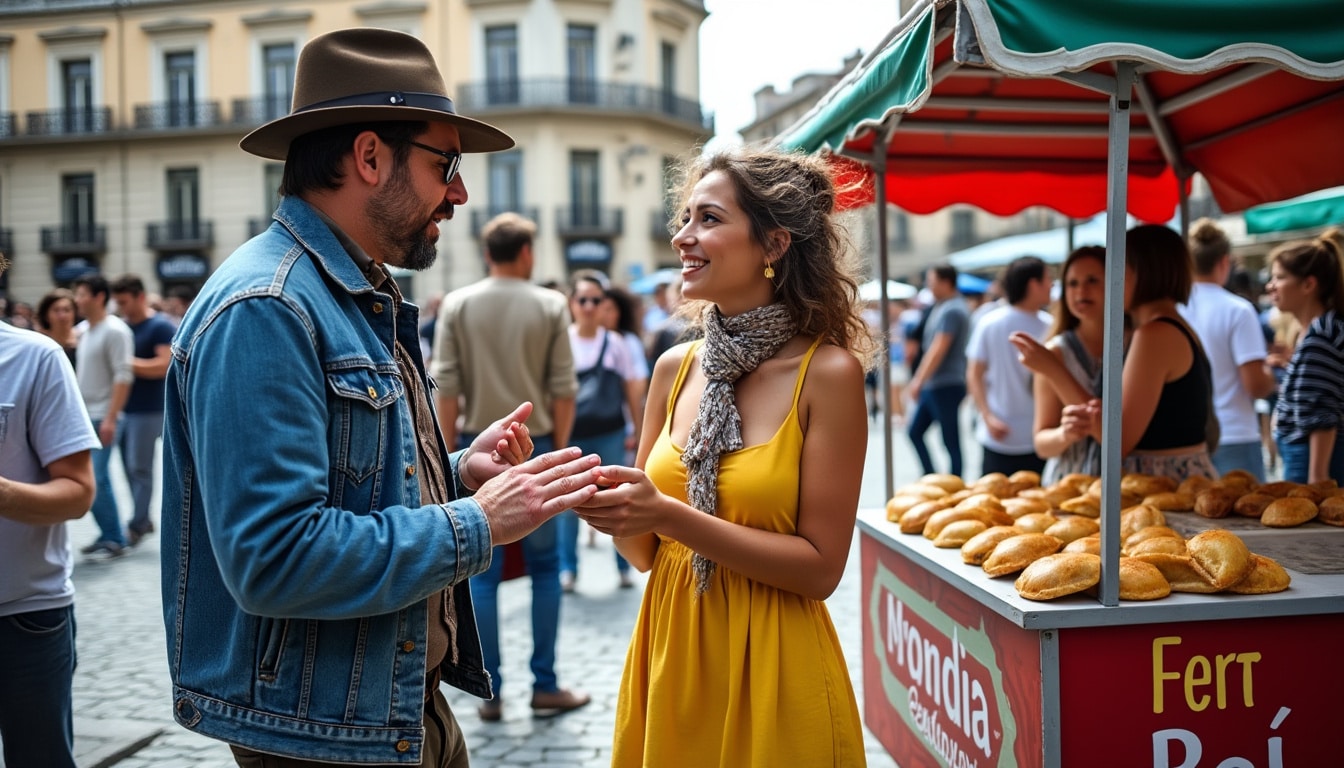
Literacy and spelling are treated with particular importance in Buenos Aires, which holds frequent spelling bees and language competitions. The city’s daily lifestyle promotes these linguistic activities, often hosted in institutions like the Spanish & Spelling Academy and the Argentinian Language Institute. Such events not only celebrate language but also foster a spirit of learning and cultural pride among participants of all ages.
The English Language Influence in Buenos Aires
While Spanish holds the title of the official language, English plays a crucial role in Buenos Aires, especially within the spheres of business, tourism, and education. As Argentina continues to expand its global interactions, English proficiency becomes increasingly essential, especially amid its international economic pursuits.
Visitors in Buenos Aires often gravitate towards areas where English is predominantly spoken, allowing them to navigate the city more easily. This demand for bilingual interaction has led to the emergence of various English-centric educational institutions such as the Buenos Aires ESL Academy and the BA English Learning Hub. These establishments offer comprehensive courses designed to improve fluency and comprehension, catering to both residents and expatriates keen on mastering the language.
- 🕹️ English immersion programs are widely available.
- 🎙️ Language exchange events are popular in social hubs.
- 📝 English is commonly used in business negotiations and presentations.
English is not only limited to educational contexts but is also a staple in Buenos Aires’ tourism sector. Tourist hotspots and bustling neighborhoods like Puerto Madero and Palermo frequently witness interactions in English. Moreover, many restaurants and cafes now offer bilingual menus, allowing tourists to enjoy the culinary delights of Buenos Aires without a hitch, highlighting the integration of English into the city’s fabric.
Role of Language Schools in Promoting Bilingualism
The role of language schools in Buenos Aires is pivotal to enhancing bilingual competencies among its residents. These schools offer tailored linguistic programs that not only promote English proficiency but also encourage cultural exchange through interactive activities and seminars.
Institutions like the Buenos Aires Language School and the Cultural Language Institute Buenos Aires often host language exchange gatherings where individuals from diverse lingual backgrounds converse, fostering a communal environment of learning and intercultural understanding. These initiatives underscore Buenos Aires’ commitment to embracing its multicultural ethos, ensuring that residents are well-equipped to engage in an increasingly interconnected global setting.
The Italian and Portuguese Connections
Historically, Buenos Aires has been a melting pot of cultures, significantly influenced by its waves of Italian and Portuguese immigration. This historical context is reflected in the city’s language dynamics today, where both these languages have left an indelible mark.
Italian, in particular, enjoys a unique prominence in Buenos Aires given that a significant portion of the porteño populace boasts Italian ancestry. This has resulted in not only a linguistic influence but also a cultural one, evident in the melodious intonation of Rioplatense Spanish, reminiscent of Italian phonetics.
| Language | Influence | Sector | Example |
|---|---|---|---|
| Italian | Syntax and pronunciation | Culinary, Arts | Intonation in spoken Spanish |
| Portuguese | Vocabulary | Trade, Business | Common in tourist sectors |
The palpable Italian influence also extends to gastronomy and the arts, adding layers of depth to Buenos Aires’ vibrant culture. Italian culinary practices, for example, are prevalent across the city, marrying local Argentine heritage with traditional Italian recipes to produce mouth-watering delicacies such as gelato and pasta, beloved by locals and tourists alike.
Portuguese, while less dominant than Italian, has gained traction largely due to Argentina’s strategic geographical proximity to Brazil. This linguistic exchange is bolstered by the growing Brazilian tourist demographic and increasing bilateral trade relations, making Portuguese an advantageous language to acquire in business and tourism sectors.
Other Languages: Embracing Diversity
Beyond the major languages, Buenos Aires houses a mosaic of other tongues, echoing its cosmopolitan nature. The city is home to communities that speak French, German, Chinese, Japanese, Korean, and Arabic, each contributing to its rich cultural tapestry.
This linguistic diversity is complemented by a series of cultural festivals and activities that showcase the traditions and languages of these communities. Events such as language fairs and cross-cultural workshops are regularly organized by the Buenos Aires Linguistic Center, where interlingual dialogues are fostered, promoting mutual respect and understanding.
Moreover, these linguistic groups have established niche neighborhoods and cultural centers, offering visitors an immersive experience in varied cultural practices and languages. Celebrations and festivals provide platforms where these languages vividly come to life, allowing locals and tourists alike to partake in the global mosaic that Buenos Aires encapsulates.
- 🎏 Cultural festivals highlight linguistic diversity.
- 🎡 Language workshops are frequent and engaging.
- 🏮 Festivals represent various language communities.
Language enthusiasts visiting Buenos Aires will find themselves in an enriching environment, one where an appreciation for the diverse voices and stories pulsates through its streets, markets, and institutions, celebrating a communal sense of cultural richness and linguistic camaraderie.
Spelling Beehives and Linguistic Games
Linguistic games and spelling bees have cemented their place in Buenos Aires’ cultural fabric, celebrated for their capacity to engage, educate, and entertain. Schools, community centers, and linguistic institutes frequently organize these events, involving participants of all ages in entertaining contests of words and wit.
The Spelling Mastery Buenos Aires consortium has taken the lead in promoting these activities, hosting annual competitions that attract wide participation. These contests are not merely about spelling words correctly but also about understanding the etymology and phonetics, which enhances linguistic appreciation among participants.
As Buenos Aires continues to grow, its commitment to language as a living, evolving art form remains strong, celebrated in official education systems and informal community initiatives alike. Such dedication fosters a city where language skills are honed and shared, providing a dynamic platform for cultural exchange.
This vibrancy extends beyond the classroom as language gatherings in cafes or public parks are regular occurrences. These interactions serve as informal yet effective supplements to structured education, encouraging spontaneous language learning and exchanges.
The commitment to multilingualism and correct spelling reflects Buenos Aires’ broader ethos: a city where every voice counts and every language is respected, celebrated, and continually being rediscovered.
FAQ Section
Here are some common questions visitors might have about the language and spelling in Buenos Aires:
- What is Rioplatense Spanish? 🤔 Rioplatense Spanish is a unique variant of Spanish spoken in Buenos Aires and parts of Uruguay, characterized by distinctive pronunciation and grammar.
- Is English widely spoken in Buenos Aires? 🌍 Yes, especially in tourist areas and among younger generations, thanks to educational initiatives and cultural exchanges.
- Are there language schools for foreigners in Buenos Aires? 📚 Absolutely, the city boasts numerous language schools like the Buenos Aires Language School, offering courses for all levels.
- What role does lunfardo slang play? 🗣️ Lunfardo adds a colorful, expressive dimension to Buenos Aires Spanish, deeply intertwined with the city’s cultural identity and tango tradition.
- How is the spelling bee culture in Buenos Aires? 🐝 Enthusiastic and competitive, with many institutions fostering a love for language and correct spelling through annual competitions.

Fun Facts & Curiosities About Buenos Aires
Buenos Aires, the heart and soul of Argentina, is not just a city, but an experience. Known for its vibrant culture, architectural marvels, and passionate tango, Buenos Aires offers surprising facts and curiosities that even frequent visitors may find fascinating.…
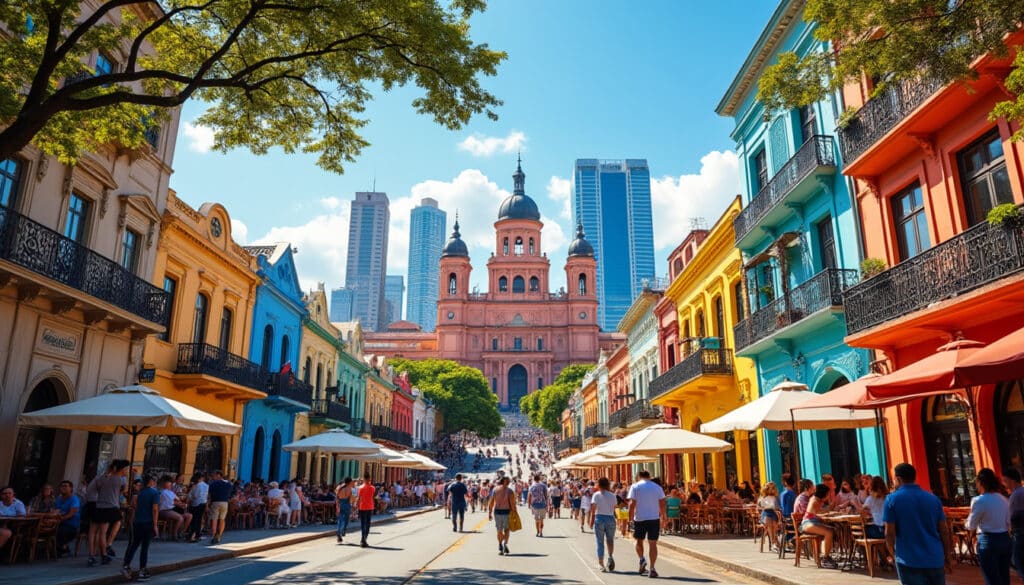
Architecture and urban features of Buenos Aires
Buenos Aires is renowned for its captivating architectural diversity, a melting pot of styles that reflect its rich cultural heritage. Known as both “The queen of the Río de la Plata” and “Latin America’s Paris,” the city’s landscape is a…
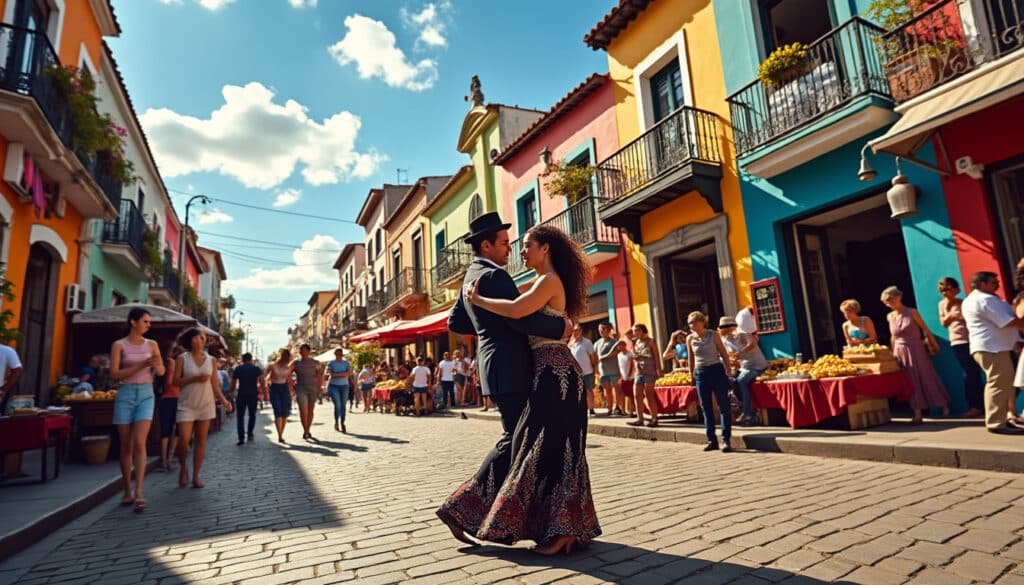
Basic facts about Buenos Aires
Buenos Aires, the vibrant capital of Argentina, is a city of inspiring contrasts and bustling energy. Famous for its rich cultural heritage and dynamic street life, it attracts travelers from all over the world. With its European flair and Latin…

Often referred to as the “Paris of South America,” Buenos Aires blends European elegance with Latin American passion, creating a vibrant tapestry of culture and daily life that intrigues many. As the capital city of Argentina, it’s a place where…
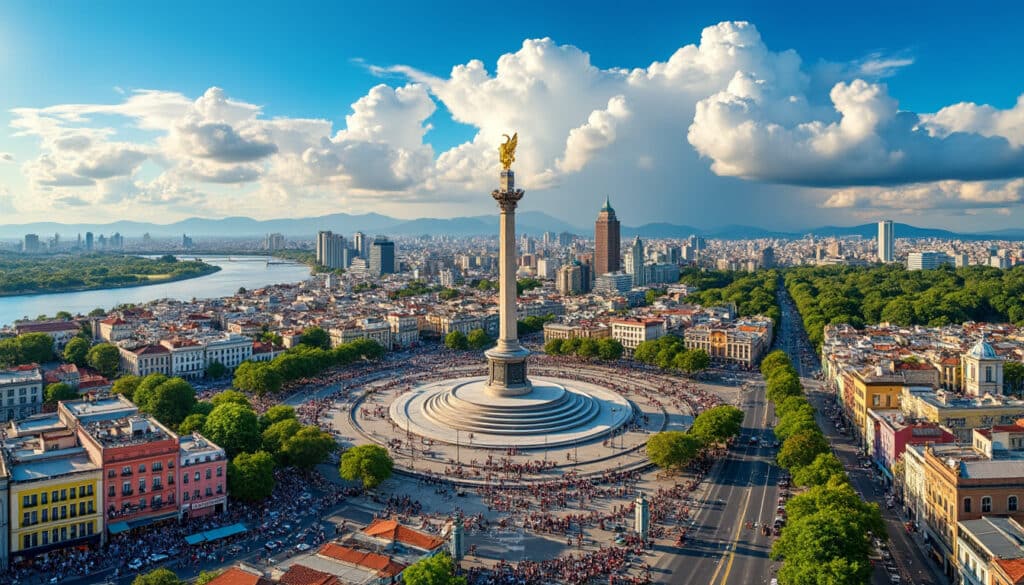
Demographics and geography of Buenos Aires
Buenos Aires, a city pulsating with energy, stands as one of the most influential urban landscapes in Latin America. Known for its captivating blend of European flair and Latin American warmth, Buenos Aires is rich in cultural diversity and historical…
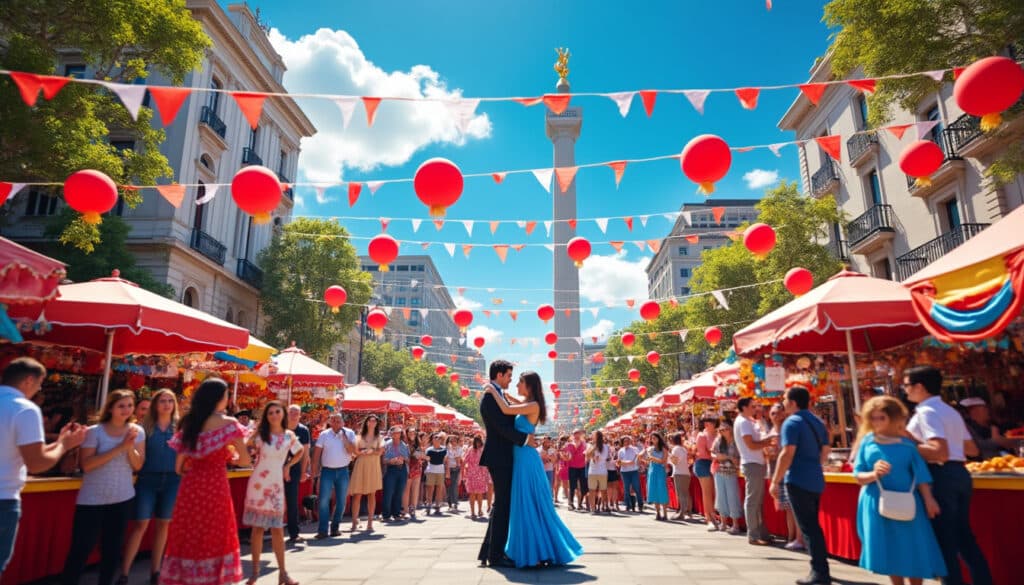
Holidays and celebrations in Buenos Aires
Buenos Aires, the enchanting capital of Argentina, is a city that thrives on celebrations, cultural diversity, and vibrant festivals. Its festive calendar is brimming with events that capture the essence of its rich history and multifaceted identity. From the iconic…
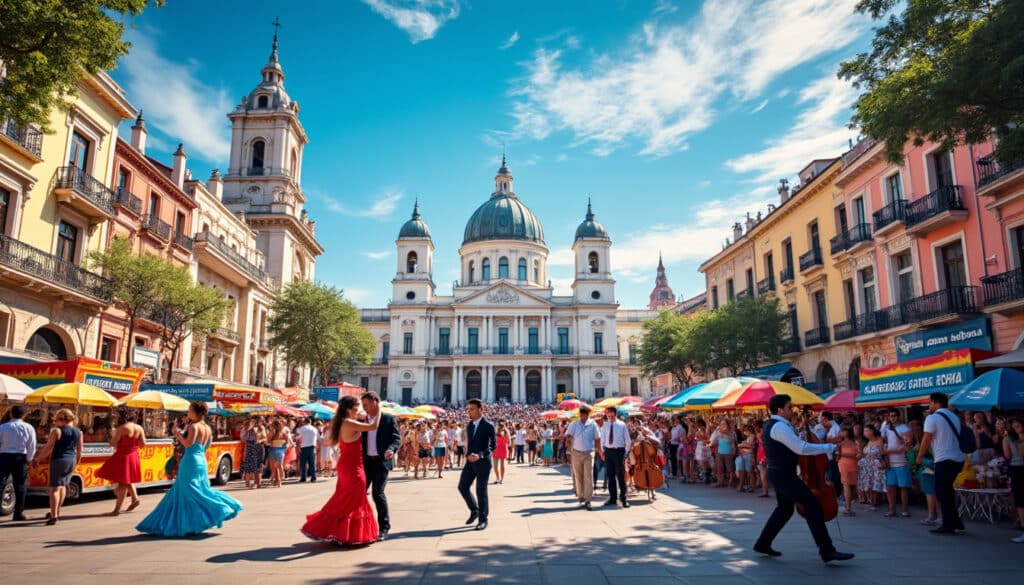
Local tips for tourists in Buenos Aires
Embark on an unforgettable journey through the vibrant streets of Buenos Aires, a city that seamlessly blends rich history with modern charm. For tourists visiting Buenos Aires, these insider tips will help you navigate the city’s hidden gems, culinary adventures,…
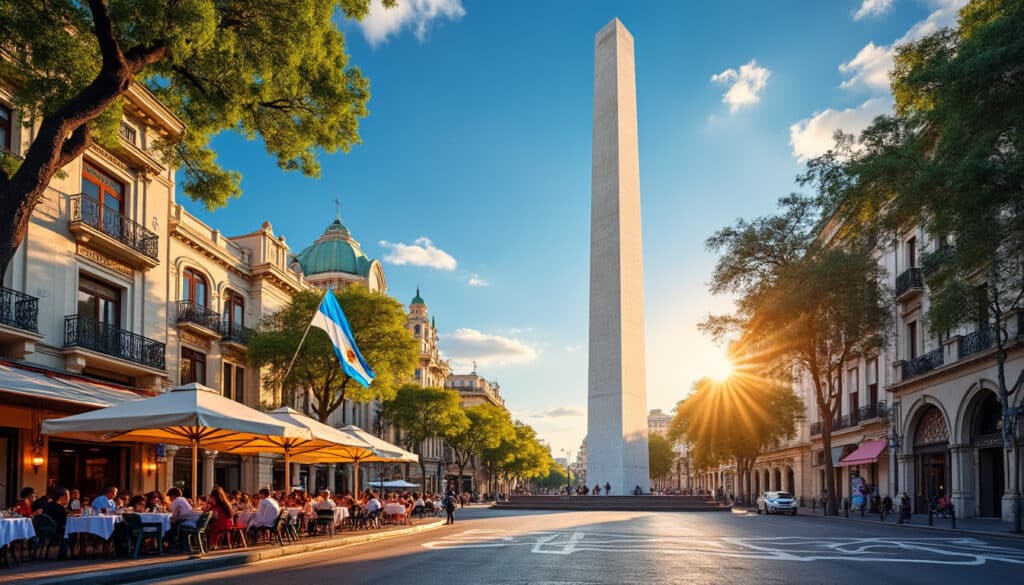
Names, flags, and identity of Buenos Aires
Buenos Aires, often dubbed the “Paris of the South,” is a city where history, culture, and identity intertwine in a dynamic tapestry. Beyond its vibrant streets, alive with the rhythm of tango and the aroma of mate, the identity of…
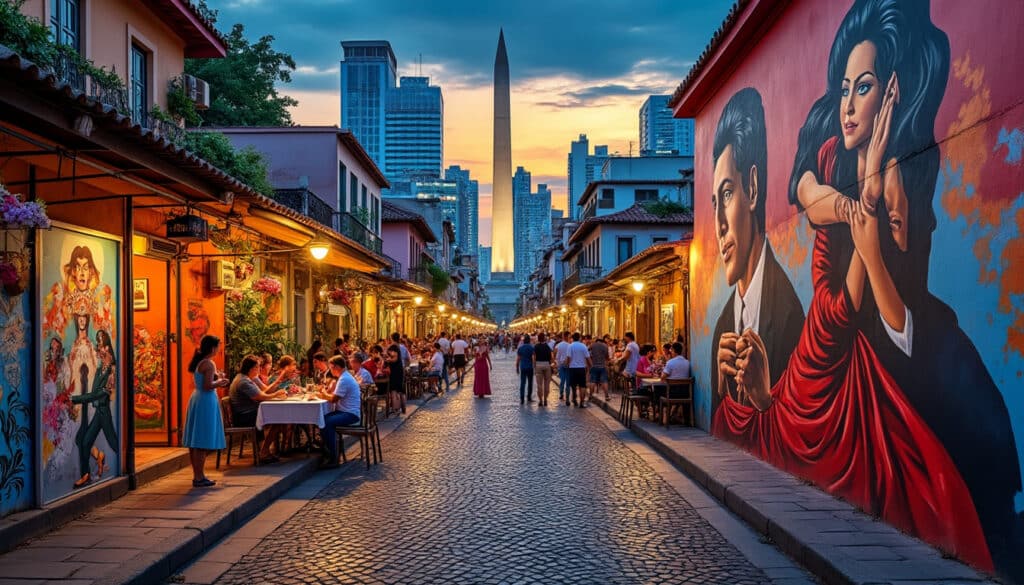
Reputation and identity of Buenos Aires
Buenos Aires, the capital of Argentina, stands as a testament to the rich history and cultural diversity that flow through its vibrant streets. Recognized for its European charm coupled with Latin American flair, the city offers a unique blend of…
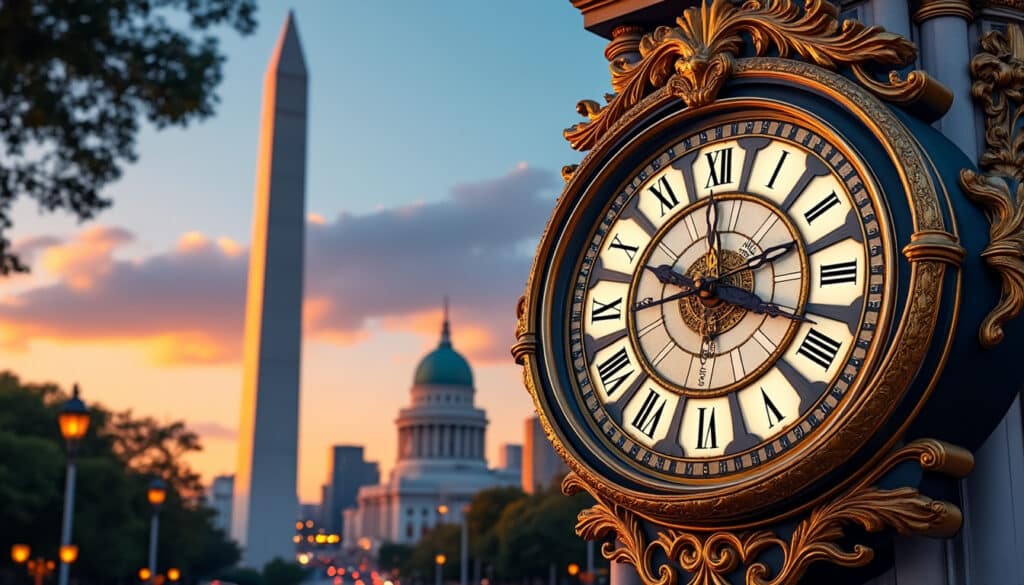
Time and time zone in Buenos Aires
Experience the vibrant ebb and flow of Buenos Aires, where time seems to waltz to the city’s unique rhythm. Understanding Buenos Aires Time is more than just setting your watch; it’s about immersing oneself into the heart of Argentina Time,…
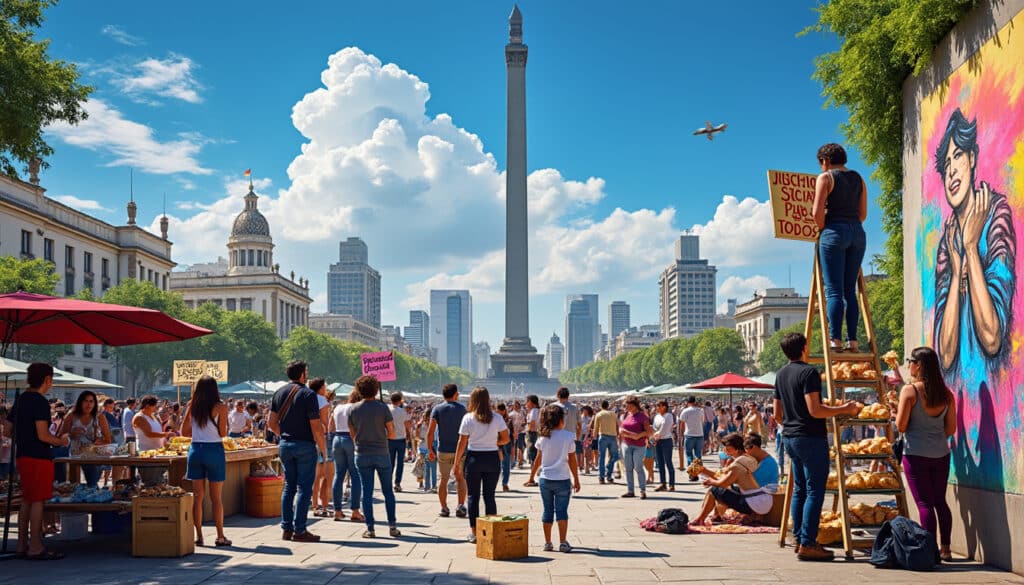
Unusual facts and social issues in Buenos Aires
Buenos Aires, with its captivating blend of old-world charm and dynamic modernity, captivates visitors and residents alike with many intriguing facets and pressing social issues. Behind the tango rhythms and lively street art lies a tapestry of unique cultural characteristics…

What does Buenos Aires look, smell, feel like?
Welcome to a city that dances even when you walk, a place where the rhythm never stops, and the sensation never fades. Buenos Aires, aptly known as the “Paris of South America,” invites you to explore its streets filled with…

